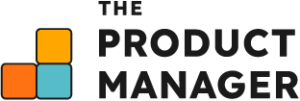Imagine this. You check your email, and at the top of your inbox, you see “it.”
In this case, it is an email from the HR department at the company where you submitted your application for the position of product manager.
With sweaty hands and weak knees, you open the message and find the following:
We are pleased to inform you that you have been selected for a screening call with a member of our HR team.
Just as you smile and breathe a sigh of relief, you realize what comes next: your very first product manager interview. At that point, the sweaty hands and weak knees reappear.
As scary as it sounds on the surface, acing your first PM interview is possible. But doing so isn’t easy. It takes quite a bit of preparation—and that’s what this article is about.
Let’s talk about the basics of preparing for your first PM interview.
1. Familiarize Yourself with the Product Manager Interview Process
This is the foundation for everything to come. When you know what to expect during the interview process, you can prepare for every possible question and challenge that may come your way.
Think about it like this: preparing for an interview in advance will reduce your stress by instilling confidence and readiness.
The interview process for PM positions varies by company, seniority level, and specific role (e.g., technical product manager, artificial intelligence product manager, web3 product manager), however, certain aspects are universal.
Initially, things will play out one of three ways:
- You receive a referral from a current employee
- A recruiter reaches out to you via LinkedIn
- You submit your application with your resume
From there, you wait for the next step in the process. For example, the recruiter connects you with the HR department or you hear from an HR rep about your resume.
Depending on the size of the company and its typical interview process, the next step can vary. With bigger companies—think Google and Microsoft—you’re likely to have an initial phone interview/screening with an HR professional or recruiter.
Smaller companies may skip this step, moving straight to a phone or video interview with a member of the hiring team.
At this point, you’re once again at the mercy of the employer. You may be invited to interview with someone else. You may be invited to an onsite interview. A rejection email is also possible (prepare yourself for this).
Note: some companies require several rounds of interviews before making a final decision. This can result in a process that lasts as long as two to three months.
2. Take A PM Interview Course
At this point, you should feel good about your basic knowledge of the PM interview process. But that’s just the start.
Now, it’s time to ramp up your activity. That means taking a PM interview course, preferably one that is self-paced. This allows you to move at your own speed, based on your knowledge, level of need, and interview timeline.
For example, PM Exercises has a self-paced product manager interview prep course that contains everything you need to master your interview skills. There are 100 video hours of learning, along with 100+ online lessons—that’s in addition to a large list of interview questions.
Here’s what to look for in a prep course.
Question Preparation
Just the same as any interview, expect quite a few questions to be thrown your way. How you answer these questions is a big part of whether or not you move to the next round.
Your prep course should provide direction on how to answer questions in these categories:
- Analytics
- Behavioral
- Execution
- Product sense
- Strategy
- Technical
If you’re not prepared to answer every question, you’re not prepared to ace your interview.
While there’s more than one way to answer a PM interview question, there are predefined structures you can use to guide you. This allows you to quickly adapt your answer to the specific question.
Tips and Insights
There’s nothing more valuable than tips and insights from experienced product managers. These people know what it takes to make it from job application to job offer.
Find a course that offers feedback from seasoned PMs, along with company guides for specific employers. These are particularly helpful if you’re applying to big-name companies like Amazon, Facebook, Google, and Uber.
Cheat Sheets
No, you won’t take these cheat sheets into your interview, but they’re nice to have as the big day approaches. You can use them to refresh your knowledge in a short period of time.
Additionally, you can use these cheat sheets to determine if you have a good enough grasp on specific types of interview questions. If you do, you’re good to go. But if you don’t, you can revisit other sections of the course to enhance your knowledge.
3. Partake In Mock Interviews
You don’t want your first PM interview to be your first actual PM interview. Protect against this by partaking in mock interviews with other aspiring PMs or those who currently work in this capacity.
Here are some of the benefits:
- Enhances Interview Readiness: Prepares you for likely questions and scenarios, increasing comfort during the actual interview.
- Provides Feedback for Improvement: Offers valuable insights to refine responses and improve communication skills.
- Boosts Confidence: Builds self-assurance, reducing anxiety and enabling more effective self-presentation.
- Improves Time Management: Teaches effective allocation of time to cover key points within the interview duration.
- Increases Familiarity with Industry-Specific Questions: Prepares you for every category of question.
- Enhances Problem-Solving Skills: Improves analytical and strategic thinking in a high-pressure environment.
- Improves Storytelling Abilities: Helps articulate experiences and achievements to demonstrate your value as a candidate.
Above all else, there are no repercussions. Maybe you “bomb” your first mock interview. Frustrating? Yes. But it’s not the end of the world. The experience alone is the reward. It shows you what you need to improve.
As for how many mock interviews you should partake in, there’s no right or wrong answer.
Here’s the one thing you should remember: mock interviewing is not a singular event. It requires continuous practice until you achieve the desired comfort level with the process. Once you reach that point, you significantly increase your chance of success in a “real” interview.
Start Here And Then Move On
There’s no such thing as being over prepared for a PM interview.
With the guidance above, you now have what you need to prepare for and ace your first interview.
There will be days when you’re frustrated. There will be times when you’re confident in your ability to dominate your interview. That’s all part of the process.
Your goal is to be 100 percent prepared when you come face to face with the hiring party. At that point, you want to be cool, calm, and collected. No sweaty palms or weak knees!


